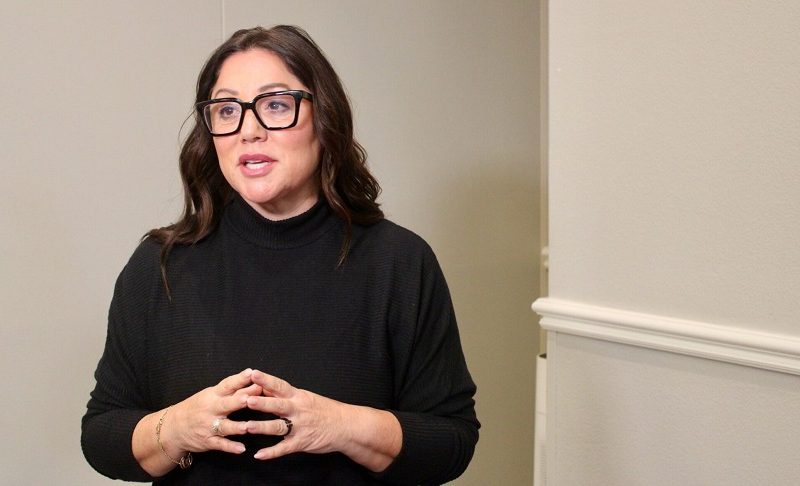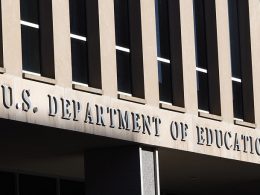Salem, OR – Lori Chavez-DeRemer, a one-term congresswoman from Oregon, was confirmed by the U.S. Senate on Monday to serve as the next Secretary of the U.S. Department of Labor. In a decisive vote of 67-32, Chavez-DeRemer’s nomination was supported by a significant bipartisan majority, including 17 Democrats. However, it was met with opposition from some prominent Republicans, such as former Senate Majority Leader Mitch McConnell, and Oregon’s own Democratic Senators Ron Wyden and Jeff Merkley.
Chavez-DeRemer’s rise from a relatively unknown political figure to a cabinet secretary represents a remarkable political journey. Before her single term in Congress, she had lost two state House races and served as mayor of the small Portland suburb of Happy Valley. Her most recent electoral defeat came in 2024, when she lost her bid for re-election to Oregon’s 5th Congressional District to Democratic U.S. Rep. Janelle Bynum. Despite this, Chavez-DeRemer’s political alliances, particularly her close ties with labor unions, played a pivotal role in her ascension to the Cabinet.
In her time in Congress, Chavez-DeRemer garnered an unexpected amount of support from labor unions, particularly small local organizations. She actively courted union endorsements, and more than 20 unions, including some of Oregon’s largest private-sector unions, offered their backing. This union support became a key factor in her confirmation. Her commitment to labor issues, even in the face of a tough election defeat, allowed her to maintain political relevance and ultimately land a prominent post within the Trump administration.
Following her confirmation, Chavez-DeRemer expressed gratitude on social media, vowing to work on behalf of American workers. “As promised, I’ll work tirelessly to put American Workers First by fighting for good-paying jobs, safe working conditions, and secure retirement benefits,” she wrote in a tweet. “Let’s get to work.”
Chavez-DeRemer’s labor ties had been under scrutiny during her confirmation process, particularly due to her co-sponsorship of the Richard L. Trumka Protecting the Right to Organize Act (PRO Act) in 2024. The bill, which would have weakened state “right-to-work” laws and allowed unions to collect fees from all workers, was seen by some Republicans as a threat to state autonomy and pro-business policies. Chavez-DeRemer distanced herself from the bill during her confirmation hearing, explaining that her support was motivated by representing the interests of her district rather than an endorsement of broader national policies.
“I signed on to the PRO Act because I was representing Oregon’s 5th District, but I also signed on to the PRO Act because I wanted to be at that table and have those conversations,” she clarified during the Senate hearing. “But I fully support states that want to protect their right to work.”
Despite the controversy over the PRO Act, Chavez-DeRemer’s nomination was ultimately supported by a broad spectrum of Senate members. Senators from swing states, such as Arizona, Colorado, Michigan, and Virginia, were among those who voted in favor, reflecting her ability to bridge partisan divides and garner cross-party support.
Her appointment marks a historic moment for Oregon, as Chavez-DeRemer becomes the first Oregonian to serve in a presidential cabinet since Don Hodel, who served under President Ronald Reagan. Before Hodel, former Portland Mayor Neil Goldschmidt was the most recent Oregonian in a cabinet position, having served as Secretary of Transportation under President Jimmy Carter.
As the new Secretary of Labor, Chavez-DeRemer will face the critical challenge of balancing the needs of labor unions with the expectations of business interests, particularly in the aftermath of the Biden administration’s labor policies. Her background as a Teamster’s daughter and her tenure as mayor and congresswoman will likely influence her approach to the complex issues surrounding American labor, from workers’ rights to union policies and workplace safety.
The confirmation of Chavez-DeRemer is not only a personal achievement but also signals a shift in the political dynamics of labor relations in the United States. With her union ties and moderate Republican stance, Chavez-DeRemer is poised to be a significant figure in shaping the future of labor policy, both in the Trump administration and beyond.











